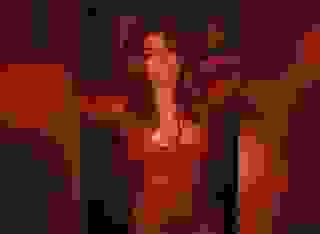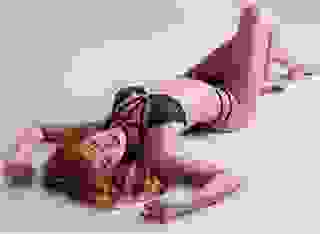Note: You can change font size, font face, and turn on dark mode by clicking the "A" icon tab in the Story Info Box.
You can temporarily switch back to a Classic Literotica® experience during our ongoing public Beta testing. Please consider leaving feedback on issues you experience or suggest improvements.
Click hereFor their Enniscorthy United Irish company, the nearby threats were, at the moment, the North Cork Militia, the bulk of which was garrisoned in Wexford town some fifteen miles south, with a smaller contingent in Enniscorthy itself, a Yeomanry company in Wexford town, and a Yeomanry company in Ferns, eight miles to the north.
Mindful of such forces, Declan was ever vigilant for uniformed men as he walked the narrow country lanes to and from Fleetwood's farm, maintaining an outwardly carefree pace. Till he familiarized himself with the farmers along the route, he several times bypassed the turn off the main road when he spied potential observers in the fields or on the road, dawdling and backtracking or making his way through the fields instead.
Concurrent with his new knowledge of their enemies, Declan also learnt of the United Irishmen's ally in the form of a secret Catholic defense society called the Defenders. Like the United Irishmen, the Defenders originated in the north, initially formed to counter the militant Protestant predecessors to the Orangemen --- the Peep O'Day Boys. The Defenders were arranged as a series of local lodges or companies scattered throughout the counties, similar to the United Irishmen.
'Twas an uneasy alliance, the Defenders and United Irishmen: united in their desire to uproot the English from Irish soil but divided upon the tenet of Catholic-Protestant brotherhood.
Every Sunday at the farm, Captain Fleetwood met with the men. Committed to promulgating the notion of non-sectarian brotherhood, he commenced the activities with a rousing communal recitation of the United Irish catechism:
Fleetwood: What have you got in your hand?
Answer: A green bough.
Fleetwood: Where did it first grow?
Answer: In America.
Fleetwood: Where did it bud?
Answer: In France.
Fleetwood: Where are you going to plant it?
Answer: In the crown of Great Britain! (whoops and cheers)
After his second day drilling in the hidden glen, Declan addressed Captain Fleetwood regarding the pike training. Recalling the drills at Kilmaedan Castle in which the guards had been instructed in defending against pikes, he offered recommendations on how the men might improve the strategy of the pike attacks. When Fleetwood discovered the scope of Declan's weapons training as a guardsman, he promoted him to sergeant and gave him charge of weaponry and drills.
Declan assiduously took on the new mantle of responsibility, keen to apply to a more worthy cause the knowledge he had gained during his two years of blind service to a corrupt nobleman. Accordingly, he began by assessing the state of the company's arsenal. Apart from their own work knives, most of the weapons were the pikes: spear heads mounted on long wooden poles. There was a sizeable cache of pikes at Fleetwood's farm, and several of the members had concealed a few about their farms. The pikes were good weapons, Declan knew, but they had not yet sufficient numbers for all the members of the company.
Moreover, he was troubled by the deficiency of firearms. Various schemes by which to come by more were soon running through his mind. From the couriers came reports that United Irish companies in neighboring counties were acquiring guns by plundering wealthy Protestant families' homes...a gambit that was unfortunately not escaping the notice of the authorities.
One busy evening at the tavern shortly after Declan's promotion, Colin Foley summoned Declan from across the room where he was standing by the fireplace. Stepping from behind the bar, Declan made his way through the crowd of men, exchanging greetings with comrades from the company. The custom of the tavern Declan now knew was comprised of fellow United Irishmen and men with like sympathies.
"Declan, here's a lad ye need to know," Foley said, gesturing to a man standing next to him. "This is Rory Redmond. Rory...Declan."
Declan felt a momentary twinge at the name of his dead brother, then offered his hand. This Rory was a lad in his mid-twenties with curly black hair and blue eyes. He was of middling height with a powerful build, and the back of his broad hand had scattered scarred patches devoid of hair.
"You're well acquainted with his handiwork --- 'tis time ye met the man."
Declan arched an eyebrow and glanced between the men.
"I'm the blacksmith," Rory said with a grin.
Declan gave a slow nod of comprehension as Foley motioned with his chin towards the bar. He and Rory Redmond headed across the room, Declan following. They walked past the bar and down the hall to the yard out back. Colin and Rory casually shared observations about the cold night air till a man stepped out of the privy and returned to the building.
At once Foley beckoned Declan to a large empty whiskey barrel standing by the fence. "You're the master of arms now, so mark this well," he instructed. As Declan silently observed, Foley crouched and lifted aside a panel of three oak slats from below the bottom iron hoop.
From hidden panels inside his coat, Rory extracted two pike heads and handed them down to Foley who slipped them into the opening. There was a false bottom in the barrel, Declan realized as he reached into the space and felt about. Looking into the cask from above, one saw leaves and murky rainwater, whilst under it was this shallow hiding place.
Foley fitted the wood slat panel back in place and stood. In a low voice he apprised Declan of the process of transporting the contraband weapons. Redmond brought pike heads from his forge to the tavern and secreted them in the barrel. From here they were collected by Captain Fleetwood when he made his weekly excursion into town to attend the market and visit the pubs. The pike heads were hidden in Fleetwood's wagon under a load of hay bales, barley sacks, stoneware milk jugs, or some such cargo. On the same trip, Fleetwood likewise stopped by the carpenter Thady Furlong's shop to load the wooden handles for the weapons. All was carried to the farm.
A pair of men stepped out into the yard to relieve themselves. Rory Redmond launched into a joke about a half-wit Redcoat and a bawdy house abbess as he, Foley, and Declan returned to the bar.
In addition to taking charge of the weapons, Declan applied his knowledge to the drills, teaching new maneuvers to strengthen the men's skill not only with the pikes, but in hand-to-hand combat, knife fighting, and battle formations --- with Fleetwood and the other officers usually training alongside them.
On March 13th, some two weeks after his induction into the company, Declan was instructing the men in sword engagement when Timmy O'Shea came running across the pasture from the direction of the farmhouse, hollering for Declan and the lieutenants. "Captain Fleetwood says come right quick!"
Declan, Coe, Bolger, and Colin Foley immediately set aside their swords and hastened towards the house.
"Is something amiss?" Bolger asked O'Shea.
"I warrant so. The courier is come from Dublin, and the Captain called for ye's urgent."
Declan caught the apprehensive looks the others shared. As they approached the yard, they beheld Captain Fleetwood standing by the woodshed engrossed in conversation with a man holding the reins of a horse. Timmy O'Shea stopped at the barn as the four of them continued towards Fleetwood.
"Aye, Captain," the courier was saying as they drew near. He saluted Fleetwood and swung astride his mount, reining the horse round and setting off for the road at a gallop.
The Captain stared blankly after the man. "Shite!" he muttered.
This from a man who normally expressed himself with notable eloquence at once set Declan's heart thumping. Fortunately, they were not kept long in suspense.
"The Dublin Executive was arrested," Fleetwood stated.
There was a moment of stunned silence. Declan's mind scrambled. The Executive? That was the Society's top leaders! The three lieutenants erupted in questions.
"'Twas yesterday," Fleetwood responded. "The meeting house was raided by the authorities, and all were arrested."
"Bloody Hell! How?!" Coe demanded.
Fleetwood's eyes narrowed. "It can only have been a spy, I warrant."
Bolger and Foley swore.
"Do we ken who?"
The Captain shook his head. "All that is known is that the entire assembly was imprisoned, and all the papers seized."
"By God!"
The men's faces were stricken, and Declan realized the import of the tidings --- not only had the United Irish leadership been apprehended, but all the intelligence contained in their documents was now in the hands of the Crown. Plans, dates, places...and the membership lists that the county delegates had brought to the Dublin meeting!
"Was Graham arrested?" Coe said hoarsely.
"Who's Graham?" Declan asked.
"Robert Graham. He's our County Wexford delegate. The courier had no particulars about that. If he was present, then we can only assume that he was."
Bolger exhaled a long slow breath, shaking his head. "Christ! Do the membership lists include names?"
Fleetwood frowned. "I think not. But, undoubtedly, they include numbers of members and perhaps company locations."
The men fell silent.
Declan was reeling at the calamitous tidings. Could nigh the whole top leadership have been cut down by a spy? Were they indeed that vulnerable?
From the day Declan had taken the oath, Foley had been warning him about spies. Espionage was a threat equal in magnitude to the various military forces about them...but yet more insidious. They must ever be wary of spies, not only among the English sympathizers in whose midst they lived, but even within their own ranks --- both by way of turncoats and infiltrators. If Declan witnessed anything at all suspicious, Foley had instructed him, he was to report it to Captain Fleetwood.
"Well, now what?" Bolger said at last. "Do we disband? Lie low? Hasten our preparations?"
"Not a chance we'll back down after years of work!" Foley growled.
Coe's fists clenched. "Aye! We'll rise earlier, so we will!"
Fleetwood's intent eyes moved round the circle of grim-faced men. "Never let it be said that the United Irishmen conceded without a fight. We shall regard this as a setback, not a defeat."
The men nodded, their faces defiant.
"We shall await further developments. Till we receive orders to the contrary, we shall continue to make ready." Fleetwood braced his hands on his weapons belt and glanced towards the barn, from whence was issuing the sound of hammering. "I shall apprise the men of the tidings."
In the two weeks following the Dublin arrests, the agitated Enniscorthy company continued training with redoubled fervor as they awaited news. Missives arrived daily from Dublin and from their brethren in other regiments. Soon word came that the embattled Society had chosen new leaders to replace the imprisoned men, and not long thereafter the company received instructions that the rising was still anticipated to begin that spring, but the specifics remained unfixed.
'Twas also learnt that the Society's beloved leader Lord Edward Fitzgerald --- nobleman turned avid revolutionary --- had escaped the raid and was in hiding --- his efforts for the cause faltering not.
The blacksmith Rory Redmond thus continued to smuggle pike heads --- two every few days --- from his forge to the secret compartment in the whiskey barrel behind Foley's tavern. Fleetwood continued to retrieve them and transport them to the farm, hidden with the wooden handles in the bed of his wagon. At the farm, the men continued to hone and assemble the pikes, and Declan continued to lead the men in drills.
Several days after the disturbing tidings from Dublin, an even more bitter revelation arrived: the identity of the spy whose intelligence had prompted the raid on the Dublin meeting house --- one Thomas Reynolds, a long-trusted, high-ranking member of the United Irishmen in County Kildare near Dublin.
By God, the Society had indeed been betrayed from within by a turncoat!
In the aftermath of these developments, the men's blood was running high, both at the farm and at the tavern. As Declan tended bar, he followed the vitriol laden debates among his comrades. Rumors were flying about a group of United Irish assassins hunting down the now hiding traitor Reynolds.
Speculation was also abounding about the date and plan for the rising. Over and over, Declan heard allusions to France's participation in the rebellion --- would they send troops? How many? When would they arrive? Would they bring cannons? Would Napoleon lead them?
"Why is everyone looking to France for aid?" Declan asked Colin Foley one night after the tavern closed. "Sure, I ken that the Society was inspired by the American and French revolutions, but why do we suppose that the French would help us?"
Colin paused in his inventory of the whiskey. "Well, for one, they're sympathetic to our cause."
Brian Foley, sweeping the floor, interjected, "And the French and the English despise each other."
"Aye, 'tis true," Colin agreed with his son. "Little provocation or pretext is required on either side to engage in battle."
Declan nodded slowly as he wiped the bar with a rag. That made sense. Indeed, 'twas the never-ending hostilities between England and France that had cost Colin Foley's oldest son his life and Mr. Murphy his leg.
"And more to the point ---" Colin transferred dirty mugs to a tray. "--- they sent aid in the first rising."
Declan turned towards Colin. "There was a first rising?"
"Attempted rising," Colin clarified. "Know ye who Wolfe Tone is?"
Declan nodded. "Aye, sure. One of the founders of the United Irishmen, now in exile."
"Aye. Even from exile, his efforts on behalf of Ireland have been unflagging. Does Bantry Bay mean anything to ye?"
"Beyond a bay on the west coast, nay."
"Christ, ye corky-brain!" Brian teased. "Don't know about Bantry Bay? What were ye --- living in a hole?"
Declan threw the rag at him.
Brian laughed and his father continued, "'Twas Wolfe Tone, in exile, who persuaded the French to send aid for the rising, and Bantry Bay was where the French fleet was to land and join with the United Irishmen. All was set for December 1796."
"The French sailed right past the bloody blind English navy," Brian crowed, leaning on the broom handle with a grin. "Thousands of French troops."
"And Wolfe Tone aboard, to boot. But 'twas for naught --- there in Bantry Bay a rare storm set in and broke up the fleet. Not a soul even set foot upon Irish soil. Thus grievously ended the first attempted uprising." Colin smiled bitterly and handed the mug laden tray over the bar to Brian before concluding, "Even as we speak, Wolfe Tone is in Paris pressing Napoleon for France's aid once more. But the tidings are not favorable. The "Little Corporal" has other fish to fry."
Declan pondered this intelligence as he finished cleaning the bar. How the devil had he been in ignorance of these momentous events? December 1796? He would have been a guard at Kilmaedan Castle...no doubt preoccupied with training for his next boxing match and trying to get a leg over with the lasses. Vaguely he recalled that there had been a point at which Captain Blaylock had increased the number of guards escorting the Duke's coach to eight --- had it been in response to the attempted rebellion?
* * * * *
With United Irish leader Wolfe Tone in exile unsuccessfully importuning Napoleon, Lord Edward Fitzgerald had become a beacon of hope for the Society. Now Fitzgerald was being hunted as a traitor to the Crown. So far, he had eluded the authorities --- tidings that marshaled the resolve of Fleetwood's company.
But the rebels' misfortunes were not yet over.
On March 30, under pressure from the military and the gentry, martial law was proclaimed in all of Ireland under the Insurrection Act.
"'Tis a fine April Fool's prank, lads," Captain Fleetwood said with a droll expression to the officers. They were gathered in the pasture at the farm, each sitting upon a large stone --- the circular arrangement of which supported the masquerade of the farm being the meeting site of a Druid's lodge.
"'Twill be Ulster again, so it will," Colin Foley foretold.
Fleetwood, Coe, and Bolger nodded with somber expressions.
"I fear as much," Fleetwood agreed.
Declan looked alertly among the men...Ulster was the northern-most province of the island. "What happened in Ulster?"
"'Twas dragooned," Foley said.
"What's 'dragooned'?"
At Declan's confusion, Fleetwood explained, "After the failed rising in '96, martial law was instituted there to root out the Society's members and disarm the people. The Crown unleashed the military upon them." Fleetwood's brows drew together. "'Twas a campaign of terror --- no method was spared to extract confessions and recover weapons --- house burnings, torture, rape, mass arrests, executions."
"Think ye that they'll dragoon the other provinces?" Declan asked.
"Aye, we must make ready." Fleetwood absently scratched the head of one of his dogs that had wandered over. "We must make the most of the one advantage that Graham's foolishness has granted us...the Crown is yet in ignorance of County Wexford's numbers of United Irishmen."
The men nodded. Since the ill-fated March 12th Dublin meeting, they had since learnt that their County Wexford delegate, Robert Graham, had been delayed in a tavern en route to the meeting site, and by thus had escaped the fate of imprisonment that had befallen the other United Irish leaders in attendance. His failure to attend would normally have occasioned much chagrin among the men he was representing, but his carelessness also fortunately meant that the Wexford membership lists were not among the papers seized by the authorities.
Based on the lists brought to the meeting by the other delegates, the authorities were at present focusing their counter-revolutionary efforts upon the seemingly most disaffected counties west of Dublin...as the newspapers and reports from the couriers indicated. No enhanced attentions from the Crown's forces had they felt so far in County Wexford --- by God's blessing, the absence of Wexford member lists was evidently taken as evidence of a fully loyal county.
Fleetwood leant to pick up a stick from the ground and threw it far into the pasture. The dog eagerly raced after it. "Whilst we yet remain undiscovered, we must press forward with our preparations."
"Aye," Foley said. "God protect our brothers and grant us the numbers to fight. The rising may start earlier than we planned."
"Without aid from France?" asked Coe.
Fleetwood took the stick from the waiting dog. "We cannot depend on the French. I see no aid coming from that quarter." He threw the stick again. "In the meantime, we lie low and make ready for battle." Turning to Declan, he added, "You'll need to abandon the raid tomorrow. We must be doubly cautious to not alert the authorities to our presence. We must procure guns by other means."
Declan nodded glumly. Recently he had heard from Rory Redmond's cousin John Redmond that his sister's sweetheart was a groom on an estate south of Enniscorthy. Sympathetic to the cause after years of harsh treatment at his master's hands, the man had disclosed that the aristocratic family, shocked by the Dublin arrests and fearful of a peasant uprising, had fled their estate for London. Ever eager to acquire firearms, Declan had proposed to Fleetwood that they take advantage of these circumstances and raid the estate's armory. Men had been selected and the sortie had been set for tomorrow night.
The dragooning of Ulster --- another portentous event of which he had been blithely ignorant whilst a guardsman at Kilmaedan Castle. And now dragooning might be coming to County Wexford --- 'twas imperative to make ready! Aye, they must find another way to procure guns!








